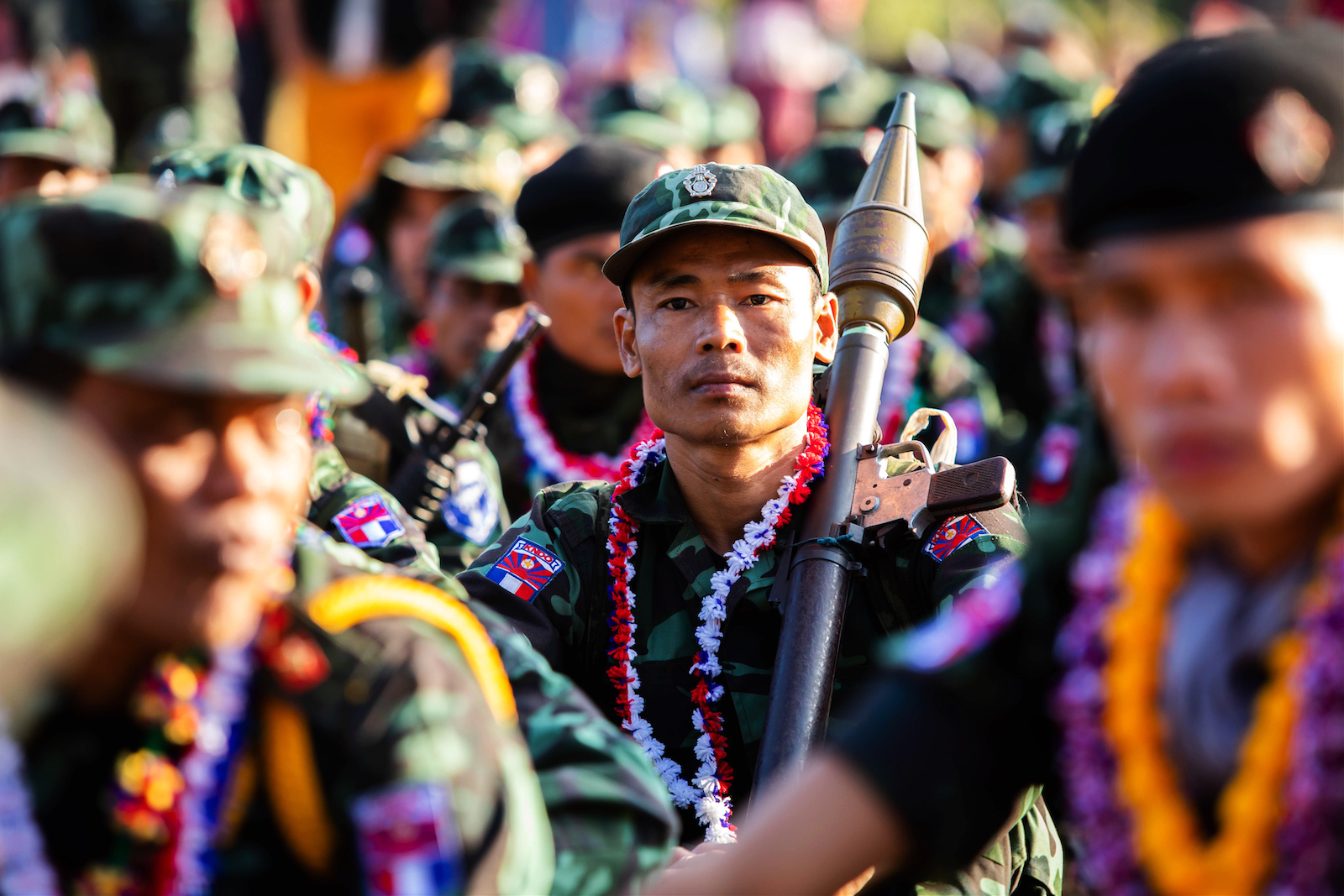
The Myanmar Karen Fight for Autonomy
Karen National Union (KNU) fighters, the ethnic armed group that has been leading the attack on Myawaddy, last week captured the last of the Myanmar army’s outposts in and around the strategic town that is connected to Thailand by two bridges across the Moei River, according to a report on Al Jazeera.
Located on the eastern border of Myanmar and facing the Thai town of Mae Sot across the Moei River, Myawaddy has been a focal point for many of the ethnic and pro-democracy groups who have struggled for decades against successive military administrations.
KNU is a political organization with an armed wing, the Karen National Liberation Army, that claims to represent the Karen people of Myanmar.
The latest clashes were triggered on Saturday morning when Karen groups launched an attack against Myanmar troops who were hiding near the second Thai-Myanmar Friendship Bridge, a central crossing point for trade with Thailand, according to Police Chief Pittayakorn Phetcharat in Thailand’s Mae Sot district.
Due to the fighting, approximately 1,300 people have fled from eastern Myanmar into Thailand.
Thailand’s Prime Minister Srettha Thavisin wrote on X on Saturday that he was closely monitoring the situation at the border. “I do not desire to see any such clashes have any impact on the territorial integrity of Thailand and we are ready to protect our borders and the safety of our people. At the same time, we are also ready to provide humanitarian assistance if necessary,” he wrote.
The Karen people are one of the largest ethnic minority groups in Myanmar who primarily inhabit the hilly eastern regions of Myanmar, near the border with Thailand, in areas such as Karen State. The Karen are also spread across other parts of Myanmar and have significant populations in Thailand as well.
The Karen consist of various subgroups with distinct languages and religious practices, including Buddhism, and Christianity.
Historically, the Karen have been involved in conflicts with the Burmese government, stemming from issues of autonomy, ethnic identity, and control over their lands. Since Myanmar gained independence from British rule in 1948, many Karen have been seeking greater autonomy or an independent state, leading to armed conflict with the central government. During the Second World War, the Karen had aligned with the British forces, assisting them in the conflict, fueled by promises and hopes for an independent Karen State post-war.
When this expectation went unfulfilled, the Karen, deeply dissatisfied, felt betrayed and overlooked in the new national framework. Their discontent sparked ongoing conflicts as they fought for recognition, rights, and autonomy within the newly independent nation. This ongoing struggle has resulted in significant displacement and humanitarian issues among Karen communities.
In recent decades, some progress has been made towards peace, with ceasefires and negotiations, but tensions and sporadic conflicts continue to affect the Karen people. Their plight has often been highlighted in discussions about human rights and ethnic conflicts in Myanmar.
While there are incidents that involve Thai territory or affect Thai security due to the proximity of the conflict, the primary struggle of the Karen is against the Myanmar government, seeking greater autonomy or rights within Myanmar.
Myanmar’s military, which seized power from the elected government of Aung San Suu Kyi in 2021, is facing a huge setback after losing control of Myawaddy.
According to a Reuters report, Myawaddy is considered particularly important to the military, with more than $1 billion worth of trade passing through the town over the last year alone.
Since last October, the army has suffered a series of unprecedented defeats, losing large areas of territory, including border posts, to both ethnic fighters, who have been fighting for greater autonomy for decades, and pro-democracy units that took up arms after the military takeover.
Unless the Myanmar military can regroup and quell the fighting, the country’s leadership may be faced with having to make the choice of whether or not to finally recognize the Karen and provide them with the autonomous state they’ve sought for so long.

